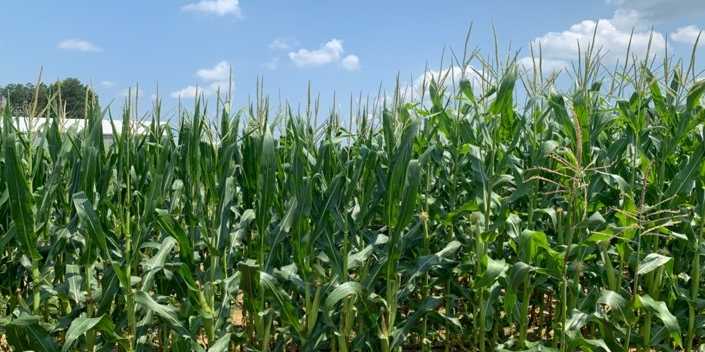Root-associated microbiome in maize under nitrogen deficiency and drought

Background
Maize (Zea mays L.) production strictly depends on nitrogen supply and water availability. During the Green Revolution in the 1960s, new maize lines selected through breeding under high-input conditions (e.g., high fertilization and irrigation) were introduced. However, these modern cultivars have low nitrogen uptake and use efficiency, with only about one third of the nitrogen provided by mineral fertilization being recovered as grain. Moreover, drought is considerably affecting crop production worldwide, especially in dry regions. Therefore, root phenotypes particularly adapted to uptake nutrient and water in deeper soil strata as well as beneficial root-associated microbiomes can be targeted to develop more resistant crops.
Objectives
This project aims to explore the interplay between genotype-associated root phenotypes and microbiomes in maize under multiple abiotic stresses. Field (in collaboration with Penn State University), greenhouse, molecular and phenotyping approaches will be used to
- evaluate stress- and genotype-dependent effects on root-associated microbiomes in maize inbred lines and landraces
- study the synergism between specific root architectural and anatomical traits and root-associated microbe
- artificially select beneficial microbiomes by repeatedly growing them under nitrogen stress and drought in association with the host maize plant (host-mediated indirect selection)
Outcomes
This study will provide novel insights into the interplay between root traits and microbiomes and its potential use as target in future breeding programs with the aim to improve plant tolerance under abiotic stress.
The project will advance our knowledge about the consequences of domestication and breeding on microbial associations in the rhizosphere and their influence on plant performance under stress. Moreover, the project will evaluate the possibility to select beneficial root microbiomes, and it will provide further methodological approaches to study root-associated microbiomes both in the field and in the greenhouse.

Country: Switzerland, USA (Pennsylvania)
System: Maize cropping system
Project duration: 3 years
Project partners: Jonathan Lynch (Roots Lab, Penn State), Alexander Strigens (DEFI Genetics SA), Mark Mescher (Biocommunication group, ETH Zurich), Tania Galindo-Castañeda, Martin Hartmann and Johan Six (SAE group, ETH Zurich)
Project funding: ETH Research Grant

For further information please contact Elena Giuliano (), Martin Hartmann () or Johan Six ().